Interview with Mickey Gitzin, Executive Director of the New Israel Fund in Israel
By Susan Hoechstetter
As part of a series on ongoing Israeli and Palestinian civil society efforts to bring about peace and promote Palestinian rights, Susan Hoechstetter spoke to several Israelis and a Palestinian American who work for social justice – active and effective leaders whom progressive Americans can admire. In part one of this series, Susan reported on her interview with Avner Gvaryahu , director of Breaking the Silence, an organization of former Israel soldiers. Her second interview was with Anna Garbar and Rawan Odeh, the managing directors of New Story Leadership, which works to develop a new generation of Palestinians and Israeli change agents.
In part three, Susan talks with Mickey Gitzin, Executive Director of the New Israel Fund in Israel. Mickey explains his recommendation for providing new Israeli heroes, an idea which serves as the title for this series. He stresses the need for civil society organizations in Israel to build a progressive movement, which can only succeed if it is based on an Arab Jewish partnership. He also emphasizes the important role American Jews can play in maintaining and strengthening Israeli democracy while there is still the opportunity to do so.
Susan Hoechstetter: Please describe New Israel Fund’s past and current role.
 Mickey Gitzin: The New Israel Fund (NIF) and its allies are victims of our own success. NIF was established in 1979 as a partnership mainly between American Jews and progressive Israelis as a strategy to heal civil society in Israel. And the strategy they started with was called “1000 flowers will bloom.” The idea was that the more civil society [organizations and the people engaged in public issues] there were, the more Israel would become democratic and progressive.
Mickey Gitzin: The New Israel Fund (NIF) and its allies are victims of our own success. NIF was established in 1979 as a partnership mainly between American Jews and progressive Israelis as a strategy to heal civil society in Israel. And the strategy they started with was called “1000 flowers will bloom.” The idea was that the more civil society [organizations and the people engaged in public issues] there were, the more Israel would become democratic and progressive.
NIF and its allies were able to create a very diverse, meaningful, and vibrant, civil society. But at the same time, because we were so fragmented, identity-based, issue-based and culturally- based, we lost the power to bring people together in order to have impact. Because every group had its own specific way of approaching an issue, we lost the ability to accumulate power.
I read an op-ed in a magazine here that NIF was very successful in impacting some policies such as getting decisions won at the Supreme Court, but not in creating and establishing a progressive movement that would support our values. And establishing such a movement is where we need to be.
SH: Do you have a strategy for bringing groups together to build power, given that NIF works with so many of them?
It sounds ridiculously hard for all of the Left to come together to fight on issues like annexation, the undermining of the Supreme Court, women’s rights, definitely Arab rights, the occupation, and so on, but at the end of the day I don’t see how to create change in Israel without bringing together them together in a movement that will support our values and ideas.
So far we’ve been fighting every policy that is put on the table. If the Minister of Culture brings forward some sort of loyalty bill we fight against it; if the nation-state law is put on the table, we fight against it. We’re not working enough to create a movement, but NIF is situated in a very favorable position to do more. We’re the only organization today that is seeing the broader picture of the progressive Left because we work with social justice activists, anti-occupation activists, Israeli Palestinian activists, and those who work on religious freedom. The people in those organizations don’t necessarily know each other, and they don’t see themselves as part of the same movement.
Breaking the Silence works on ending the occupation. Avner Gvaryahu, the executive director, wakes up in the morning with one mission in mind and that’s what he needs to do – fight occupation. I can’t think only about the occupation. It’s extremely important, but it’s not the only story. It’s part of the bigger picture. And those who work on social economic justice issues like expanding the amount of public housing in Israel because poverty brings populism, they focus on their issues. it’s our place to say to all of them – we don’t measure ourselves by the policies we change, but actually by the movement we create. It’s also our job to bring these groups together.
So if you’re an activist on the rights of women to pray at the Wall, you need to know your Palestinian friends who work on women’s issues. It’s incredibly important. Whatever you main cause is, it will stay the same. But if you come to a training course by Shatil, our capacity-building arm, you’ll meet your colleagues who are also executive directors of organizations, and you’ll see yourself as part of the same movement, and that will create change. And you’re going to know that your goal is not only, for example, to bring up the occupation on the level that will make people aware of it, but also to increase the number of teenagers and youth in Israel who visit Hebron with Breaking the Silence. That is a measurement related to changing the hearts and minds of people. It’s important to balance the need to impact policy and the need to create a movement and that means that our very Israeli character of wanting results here and now will need to calm down a little bit because we’re looking at a long-term process. Of the NIF investments today, 70% of what we do is policy and 30% is movement building, but that may change.
SH: Is taking a long term view difficult when people have pressing security concerns?
MG: It’s very difficult. Netanyahu is elected again and again and again because most Israelis feel the situation is too unstable and they prefer stability and security. And for middle-class Israelis, the situation may have even become better. But this is an important time to obtain power through coming together
When I speak about building the movement I think about three different investment elements. One is new ideas. So what do we have to offer to the public? We are offering the same ideas as progressives in the ‘90s offered – two state solution, welfare state, all the same. We have to ask ourselves – are we still relevant with the ideas that still sit on the table? Are the policies that we suggest the best we can offer?
Who are the best people who are equipped to answer the questions? Gaza has changed. The West Bank has changed. Israeli society has changed. The relationship between Jews and Arabs within Israel has changed. And we are offering the same thing. I’m not saying that these things have been resolved, but that we need to sharpen our thinking about them and provide new ideas to the table, something that not only the left in Israel but the left in all the world needs to be doing.
Second we need to think about investing in or creating the institutions or vehicles through which these ideas will be brought before the public, and the public includes both the masses and leadership. Institutions like think tanks, universities, and zazim.org.il, the Israeli equivalent of MoveOn.org that we created a few years ago, are those vehicles for ideas.
The last thing we need to invest in that creates a movement is the people. I’m talking about leaders, thinkers, local community leaders, and the general public. I’m talking about teaching people why social democracy is a better way of running an economy rather than a pure neoliberal capitalistic approach. We need to get to the people.
SH: One of the leaders I spoke with here in Israel, Rabbi Schlesinger of Roots (Shorashim), works with settlers and Palestinians in the Palestinian Territories to find common ground. Would NIF funding groups like Roots be a new idea?
MG: It’s part of what we need to examine. We do not fund things on the other side of the Green Line which makes total sense to me. On the other hand it’s an interesting thing to re-examine. What does the Green Line mean?
SH: what should American Jews be doing to help build a movement?
MG: I want to start with the right wing here and their relationships with the U.S. Over many years, but mainly after the Israeli disengagement from Gaza, the right wing in Israel, in cooperation with American Jews from the right, decided that their mission was to change Israeli society. They felt that the settlers were not given enough support by Israelis. In order to change that they decided to fight over the hearts and minds of Israel by not only living in the settlements but living in peripheral areas of Israel. They would bring their ideas there, they would be much more influential in the military and the political system, and so on. They felt that the Israeli society had betrayed them. The rabbis had promised them that the disengagement would not happen because it would be against God‘s will. And disengagement happened with the support of the majority of Israel.
And they decided to integrate more deeply into Israeli society, to take more senior roles in the army, public services, and education. Americans from the right wing went along with them. They stopped supporting Israel [as a whole] and started supporting the right wing effort to retake the hearts and minds of Israelis. That’s the Sheldon Adelson story. Now, right wing American Jews support right wing conservative Israeli parties, while progressive American Jews support Israel as a whole. And then they [American Jews]are disappointed with the Prime Minister and other government leaders who are against their ideology.
My suggestion is to create a new partnership of progressives both here and there. They would support progressives only and their heroes would be Avner from Breaking the Silence or an asylum-seeker from South Tel Aviv, people who are progressive Arabs and Jews, people with whom they share values.
I was a shaliach for a Jewish organization in South Bend, Indiana a long time ago, before Mayor Pete made South Bend cool, and I know that American Jews often raise their children with Israel as a main story in their identity, and with Israeli heroes. We need to create new heroes for our children so that they are proud of them because they fight against the occupation, because they are in line with the efforts for social justice, and because they are there when racism arises. Peter Beinart told me that the heroes of his children are the soldiers of Breaking the Silence instead of the soldiers of the occupation. That’s an amazing opportunity to change the story.
SH: What else is important for building the progressive movement in Israel?
We’re looking at a long-term struggle. And I don’t believe the international community will save Israel. We of the left have always told Israeli society if we don’t move towards a two state solution the international community will punish us. There will be an international tsunami. But actually, the international community has come closer to Netanyahu’s than it has to our values, definitely with the leadership of President Trump, but not only with him. Israel is part of the populist wave and we’re living it. Netanyahu is a true leader within the wave. And he has more powerful and meaningful international allies than anyone else on the ground here in Israel.
Another important point for this movement is that if you look both politically and value-based, this movement must be a Jewish Arab Joint venture. We cannot think anymore, as the center of the Israeli political landscape has thought for many years, that it can be based only on Jews.
We need to work again on the political partnership as was done during the Rabin time. To do so, first, we must legitimize the Arab citizens of Israel within Israeli Jewish society. Some Israeli Jews think “yes, the Arabs have the right to vote, but don’t want to see them in any position that is actually influential.” We must change that and we must humanize the Arabs.
Second, we need to convince the Arab minority that despite the history we can be true partners with them. It’s really hard, and I can understand why they wouldn’t want it, but we need each other. In 1999, Israeli Arabs voted for Ehud Barak, who let them down. They remember with great pain the demonstrations the next year in which 11 Israeli Arabs were killed by the police?
The third thing is to convince them that they will have impact on Israeli society because they don’t feel that they can have any real influence, that it doesn’t really matter. And I have to say there are critics against this approach of mine among the left because they say we take advantage of the Arabs; we use them to gain power as leftists. But I think it’s the only possible option for both Jews and Arabs. Actually, neither group has any potential to succeed without the other.
SH: Are there Arabs on the NIF board?
MG: Half the board is Israeli, half is American. So out of the approximately 12 Israelis, three are Arabs, and I can tell you that we really want more Arabs on the board.
SH: Does NIF work closely with the other groups?
MG: Sure, a lot. The reason why I think that we can be the convener is because we are the only organization who meets with anti-occupation and shared society groups as well as many others. The anti-occupation organizations meet with each other, but not necessarily with a shared society organizations. And that’s something we need to break. The groups will never be successful at creating change on a broader level if they don’t go outside their own silos to work together. Organizations like zazim.org, or the new Jewish Arab movement called Standing Together, Omdim Beyachad, cross silos. When one organization is attacked by the government they don’t want to see only human rights organizations supporting them, they want to see the entire movement supporting them. And the entire movement will not support them until the organizations see themselves as part of the same movement.
SH: Are NIF grantees being successful at energizing the base?
MG: I think so, and the question is what is the base? Is Women Waging Peace part of the base or not? I don’t know. They are trying to be centrist in their approach and distance themselves from the political margins so they can bring in as many people as possible. I think it’s a failing strategy.
What do they [WWP] think? That they will be able to bring the two state solution, a peaceful solution, with the support of the Kahanists? But they’re not willing to align themselves with the movement. And, again, that’s a fair strategy.
SH: what are your final words for American Jews?
MG: First, by the way, I see American progressive groups making the same mistakes we made 10 years ago. That is: making fun of the right wing, undermining them, thinking they’re not intelligent enough, thinking Trump doesn’t get what he does, thinking that being against Bibi or being against Trump is enough of a mission to bring people together. And I see Trump being reelected.
I want to go back to the example I gave about the right wing changing Israel. You know Americans have stood with Israel for so long in our external wars with the world. This now is a fight for Israeli democracy. Is Israel going to go with the vision of the Declaration of Independence or continue being part of the populist wave? This is the time to invest because maybe in five years it could be too late – the character of Israel will be so far from what is envisioned by Americans that Jews in America and Israel will really be two separate communities. There is a real chance for influence now, and it’s the best time for influence, as difficult as it sounds.
—
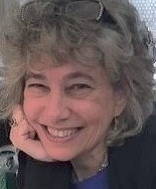
Sue Hoechstetter lives in Washington, DC where she writes about advocacy, social justice, Israel, and other topics.

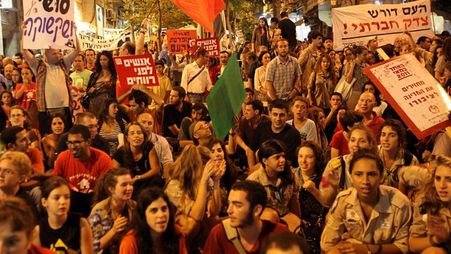
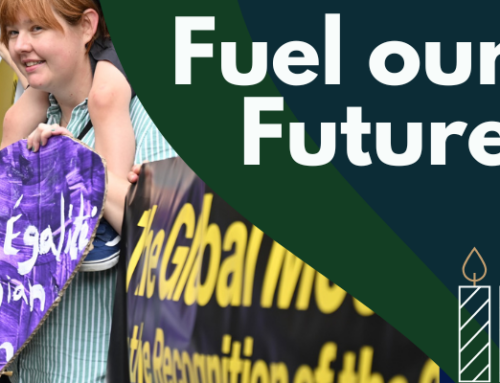
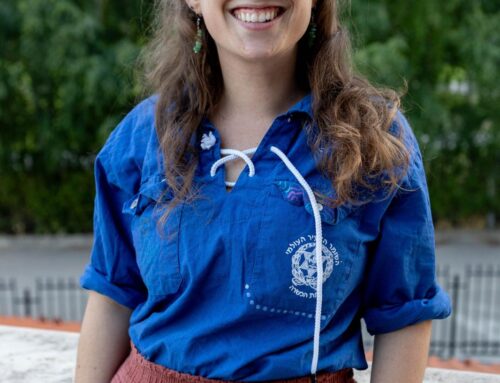
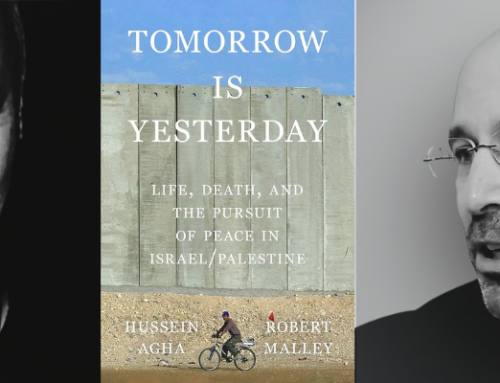
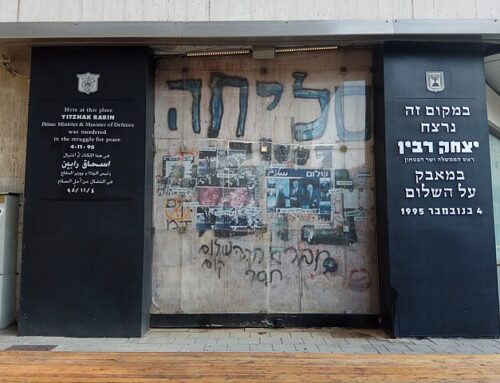
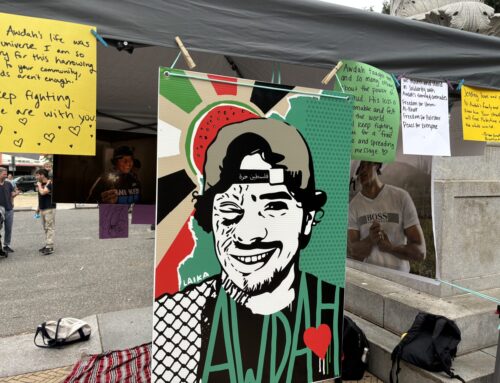
Leave A Comment